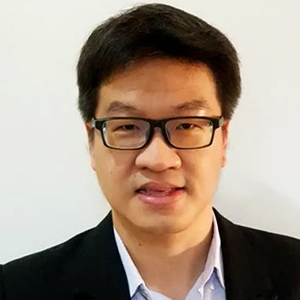THANK YOU FOR SUBSCRIBING

Alec Bashinsky, CHRO, Deloitte
In today’s Talent/HR climate, their needs to be more disruptive to the way in which we approach Talent as we head towards 2020, and at this stage, there appears to be not enough understanding nor focus on innovating new HR technology to impact change in the Talent space.
Two critical areas for innovation in HR technology stem from the strategies around AI and Workforce of the Future.
If we look at Workforce of the Future and understand the changing face of Talent Acquisition, current research in the USA suggests that by 2020, 40 percent of the available workforce will be independent contractors.
What this now means for many organizations is:
• Why are they looking to continue to hire FTEs?
• What are they doing to build an Open Talent Network (OTN)?
Organizations should be looking to augment their workforces by building an Open Talent Network where they can add contractors, alliances, crowd source talent etc., so that they are able to decrease their fixed labour costs and also tap into new pools of high quality talent that don’t necessarily want to work in a fixed way or for 12 months of the year.
To innovate here, organizations needs to think about how they acquire or build their own Open Talent Platforms, and these should not be confused with labour/contractor hire data bases. An Open Talent Platform has two components:
Organizations Needs To Think About How They Acquire Or Build Their Own Open Talent Platforms, And These Should Not Be Confused With Labour/Contractor Hire Data Bases
1. An External Talent Platform that allows contractors/ alliances and open talent in general to register their details or apply for OTN roles—it can be fixed term, contract for a specific project or used to supplement existing FTE resources).
2. An Internal Talent Platform that allows for any organization to search its own talent data base in a sophisticated way to enable the sourcing of the right skill set/experiences from within their own talent pools – this is something that is just not possible with existing HRIS platforms as technology needs to be developed that captures what an employee does within each project or role that builds their experiences.
Currently, employees would need to enter these skills or experiences as they are acquired, where as an intuitive OTN technology would automatically add these to their profile.
The second innovation in technology that needs to occur is a tangible piece of development around AI in relation to Talent as most developments tend to centre on robotics and process elimination.
AI specifically relating to Talent should come in the form of behavioural engineering innovation to develop a front end AI solution specifically for recruitment. A couple of early advancement in this area are now providing technology mapping of questions in relation to open roles whereby AI can specifically answer all questions via SMS, chatbots, etc., relating to:
• Location, salary, qualifications, career questions, flexibility, assessment info, etc., which allow the existing FTE recruiters to focus more time and energy on the interviews and stakeholders.
• In time, Talent AI in this space will also allow for more predictive analysis of the successful candidates and their attributes to improve hiring in the longer term.
• The final component here is that,he will also reduce the number of recruiters required to deliver on these open roles.
So the ability to drive technology innovation into these two specific talent areas will undoubtedly start to change the face of the HR function, develop new HR technology apps/ platforms and totally revolutionise the approach to talent within an organization.
Deloitte, is a UK-incorporated multinational professional services firm with operational headquarters in New York City in the United States. The firm provides audit, tax, consulting, enterprise risk and financial advisory services with more than 244,400 professionals globally.
Check This Out: Top HR Consulting Service Companies












